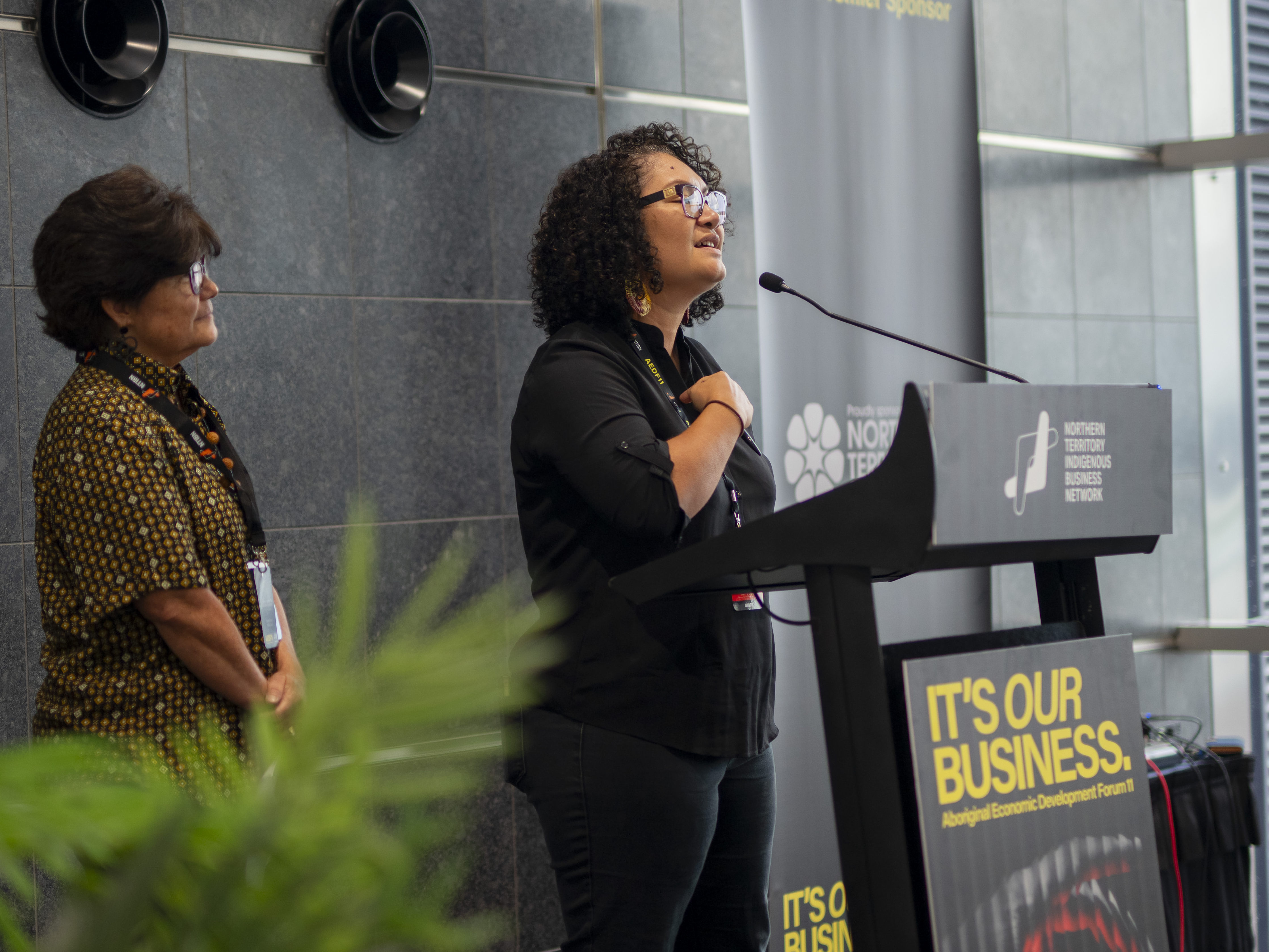Supply Nation's decision to not include any Indigenous-owned businesses while inviting weapons manufacturers and the Department of Defence to its newly reconvened Leadership Roundtable has drawn sharp criticism from Indigenous business leaders and federal politicians.
The roundtable, revived this year after a pandemic pause, is a key initiative of the not-for-profit Supply Nation, which promotes supplier diversity and growth of First Nations businesses.
None of the 15 roundtable appointees represented Indigenous businesses, despite the forum being described as a "mechanism to test concepts and programs prior to broader implementation."
Supply Nation said the roundtable was not meant to address broader Indigenous economic issues, but to support its 5,000-plus members in improving procurement practices.
This explanation has not eased concerns.
Senator Kerrynne Liddle, Shadow Minister for Indigenous Australians, said: "Of course, it's a concern when (there is) no Indigenous representation at a Supply Nation roundtable."
"Now is not the time to reduce focus on Indigenous business," said Senator Liddle, an Arrernte woman and South Australia's first Indigenous MP.
While acknowledging Supply Nation's work, she said it "cannot be all things to all businesses".
"There is much to learn from the two-thirds of Indigenous businesses not registered with Supply Nation," she said. "We don't engage these SMEs (small and medium enterprises) nearly enough."
..jpg)
The Noongar Chamber of Commerce and Industry urged greater accountability from Supply Nation, which receives federal funding.
"It's always a concern when our people are not at the table," said NCCI chair Gordon Cole.
"Supply Nation must balance the interests of members and Indigenous suppliers."
In most cases, Indigenous businesses must be certified or registered with Supply Nation to access major contract opportunities.
"At times, it seems Supply Nation members receive more focus. Indigenous suppliers expect and deserve more," Cole said.
"The government should ensure Supply Nation is accountable."
Cole described the Indigenous business sector as "the sleeping giant that had awoken", but said proper support was essential.
"NCCI is part of the National Indigenous Business Chamber. Our goal is to grow the sector from community level to national and international," he said.
"Indigenous business is strong and will only grow stronger."
The Murri Chamber of Commerce has called for a reassessment of how federal support is distributed through Supply Nation, which receives government funding to promote Indigenous enterprise.
"When two-thirds of Indigenous businesses aren't even on Supply Nation's list, you've got to ask - who's actually being served?" said Chair Adam Williams.
He said the process often feels like "ticking off a checklist for someone else's annual report", with rigid certification requirements that don't reflect how business operates on Country.
"Culturally, our mob values relationships, trust and face-to-face support - not faceless bureaucracy," he said.
Williams argued that funding should go to organisations grounded in community and trusted by local business owners, not just those with national branding.
"As regional chambers, we're boots-on-the-ground—building real relationships, advocating for our people, and ensuring our voices aren't sidelined," he said. "We bring cultural accountability and lived experience, not just statistics."
Northern Territory Indigenous Business Network CEO Naomi Anstess said excluding Indigenous businesses contradicts Aboriginal-led decision-making and the co-design commitments of Closing the Gap.
She called Blak-to-Blak trade powerful and sustainable, and said the roundtable's composition reflected a "blatant erasure of our legitimacy and right to lead".
"True allies make space for us to lead. When the focus is on what non-Indigenous corporates can do for us, it sidelines our autonomy," she said.
Anstess also criticised the lack of support for Indigenous-to-Indigenous trade, often led by underfunded grassroots chambers.
"These organisations are building an economy that uplifts all of us," she said.
The roundtable sends a message that "we are not seen as equals".
"This exclusion is structurally damaging and reinforces a colonial hierarchy," she said.
"With this announcement, Indigenous businesses are treated more like a database than stakeholders."

The inclusion of BAE Systems and Boeing Defence Australia has added to tensions, especially amid the war in Gaza.
Independent Senator Lidia Thorpe condemned the presence of arms manufacturers.
"It is completely inappropriate," said the Gunnai, Gunditjmara and Djab Wurrung senator.
"Weapons companies have no place on a roundtable for Indigenous business.
"They use performative Reconciliation Action Plans to black-clad their role in global violence."
Thorpe said these companies cannot promote reconciliation while supplying weapons used in overseas conflicts.
"This is about reputation laundering, not reconciliation."
BAE Systems supplies arms to the Israeli government. At least two senior Israeli government officials are subject to ICC arrest warrants for alleged war crimes in Gaza.
Despite this, BAE has been chosen as a finalist for Supply Nation's Corporate Member of the Year award, to be announced at Supply Nation's Awards Gala in Sydney in August.
The company manufactures about 15 per cent of each F-35 jet, including the rear fuselage and electronics. The Israeli Air Force has used these jets in Gaza strikes.
It also supplies Israel with missile launch kits, F-16 gunsight tech and components for 155mm artillery shells recently used in the conflict.
In response to the backlash, Supply Nation defended the roundtable's purpose.
"The aim is to coordinate voices on supplier diversity and procurement from Indigenous businesses," a spokesperson said.
Supply Nation said it uses "different forums and mechanisms" to engage Indigenous suppliers and stakeholders.
"The roundtable builds capacity among our member network and helps test programs before broader rollout."
"Corporates and government departments involved are showing leadership in supporting Indigenous business."
Participants were selected through consultation, criteria development, and expressions of interest.
Membership fees, sponsors and event partners are published on Supply Nation's website.
For many Indigenous business leaders, the message from this decision is one of exclusion, not inclusion.
